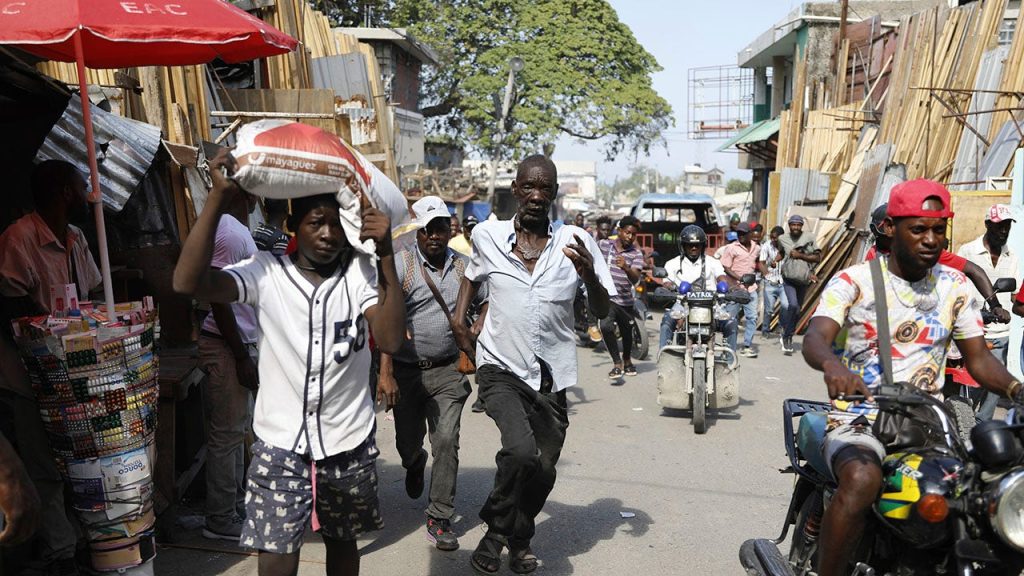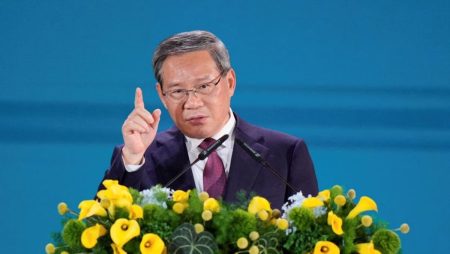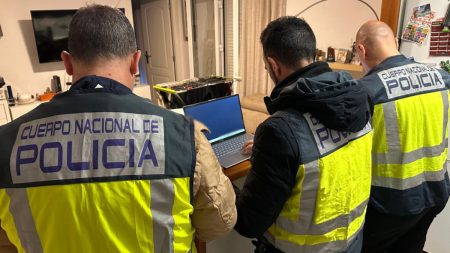The escalating gang violence in Haiti has reached a horrifying crescendo, claiming the lives of at least 5,600 people in 2023, according to a stark report from the United Nations Office of the United Nations Commissioner for Human Rights. Beyond the staggering death toll, a further 3,700 individuals were subjected to injuries or abductions, painting a grim picture of a nation teetering on the brink of collapse. The report has sparked criticism of the Biden administration’s response, with some accusing the US government of a piecemeal and politically motivated approach that prioritizes short-term stability over addressing the root causes of the crisis. Critics argue that the administration’s focus has been on preventing a pre-election explosion of violence rather than implementing a comprehensive strategy to dismantle the gangs and restore order.
The financial commitment from the United States to Haiti stands at $629 million, encompassing both financial aid and equipment support, with $600 million already disbursed. However, this pales in comparison to the over $113 billion allocated by Congress to Ukraine, highlighting a perceived disparity in the US response to international crises. While acknowledging the complexities of both situations, some analysts argue that the US involvement in both Haiti and Ukraine lacks a clear and coherent strategy, raising concerns about the effectiveness and long-term impact of these interventions. The disparate levels of financial support further fuel the debate about the prioritization of international aid and the factors influencing resource allocation.
The brutality of the gang violence is epitomized by a horrific massacre in Port-au-Prince in early December 2023. The Wharf Jérémie gang, notorious for its ruthless tactics, slaughtered at least 207 people, many of whom were elderly. The victims were accused of practicing voodoo to harm the gang leader’s son, a chilling testament to the climate of fear and superstition that pervades the capital. The barbarity of the killings, with bodies mutilated, burned, and some even thrown into the sea, underscores the utter disregard for human life that characterizes the gang’s reign of terror. This incident serves as a stark illustration of the escalating violence and the urgent need for effective intervention.
The pervasive influence of gangs in Haiti is alarming, with estimates suggesting they control approximately 85% of the capital city. This dominance has created a pervasive atmosphere of fear and lawlessness, severely impacting the lives of ordinary citizens. Essential services, including schools and hospitals, have been disrupted or destroyed, further exacerbating the humanitarian crisis. The U.N. High Commissioner for Human Rights, Volker Türk, has emphasized the urgent need to restore the rule of law and provide robust support to the U.N.-supported Multinational Security Support Mission (MSS) to effectively address the escalating violence. The dire situation necessitates a concerted international effort to bolster security forces and dismantle the criminal networks that have gripped the nation.
The MSS, intended to address the security crisis, has faced significant challenges in its deployment and operational effectiveness. While the mission pledged over 2,500 personnel from various countries, only around 500 have been deployed, leaving them vastly outnumbered by the estimated 12,000 gang members operating in Haiti. Furthermore, many MSS personnel have not received payment for months, hindering their ability to carry out their duties effectively. The lack of adequate resources, both in terms of personnel and financial support, has hampered the mission’s ability to restore stability and protect civilians. The State Department, while defending its record and highlighting a joint operation that resulted in the death of a high-profile gang leader, acknowledges the need for increased support and a transition to a UN peacekeeping operation.
Transitioning the MSS to a UN peacekeeping operation, while seen as a potential solution by some, faces significant obstacles, particularly the lack of approval within the UN Security Council. China’s staunch opposition and anticipated veto pose a major hurdle to this transition. The U.N. report underscores the critical need to fully implement sanctions and the arms embargo on Haiti to stem the flow of weapons into the country and prevent them from falling into the hands of criminal gangs. The unchecked flow of weapons contributes to the escalating violence and exacerbates the suffering of the Haitian people. Addressing this issue requires a concerted international effort to enforce existing sanctions and prevent further proliferation of weapons within the country.










